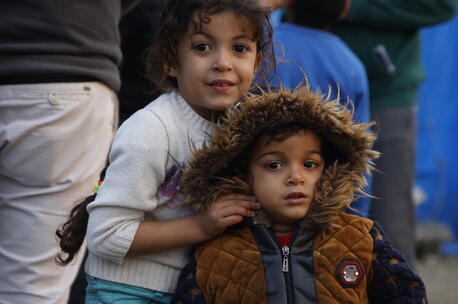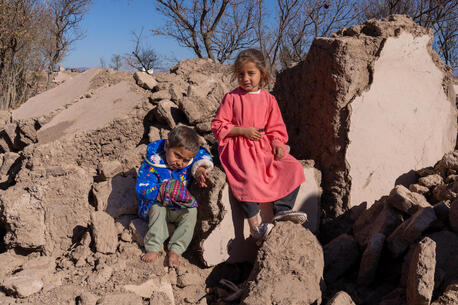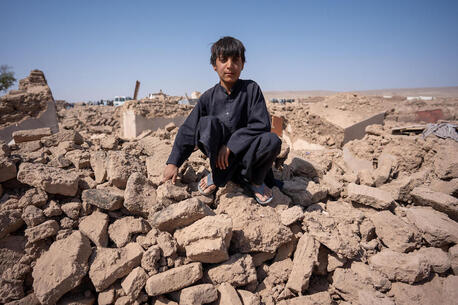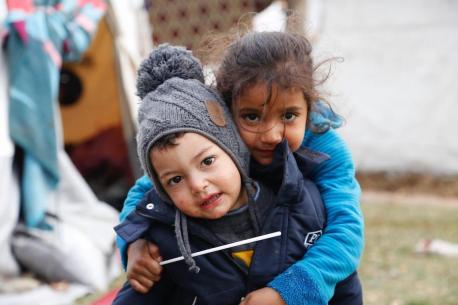
One Month After Türkiye and Syria Earthquakes, Millions of Children Still in Need
In the aftermath of devastating earthquakes, UNICEF is working around the clock providing lifesaving assistance to children and helping families rebuild their lives.
The first quake came in the early hours of Feb. 6. Without warning, buildings swayed and toppled as parents in Türkiye and Syria pulled sleeping children from their beds and rushed out into the cold, wet winter night.
Since then, another major earthquake has hit the region, along with over 11,000 aftershocks. More than 850,000 children remain displaced, their homes damaged or destroyed. The combined death toll has surpassed 50,000, with thousands more injured.
As children cope with shock, fear and uncertainty, their parents are struggling to keep them safe and warm in temporary shelters. Some families are afraid to return to their homes, now structurally unsound and in danger of collapse. Others no longer have a home to go to.
UNICEF is working around the clock to meet their most pressing needs.
Millions displaced across Türkiye and Syria
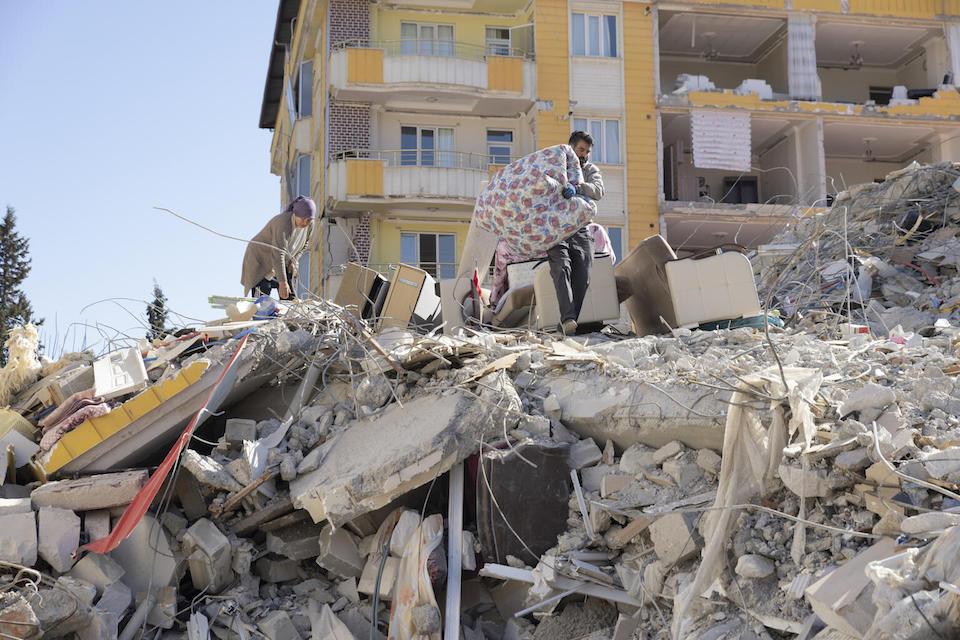
The numbers are staggering. In Türkiye alone, over 1.9 million people are staying in shelters with limited access to basic services such as water, sanitation and medical services. An estimated 2.5 million children in Turkey require urgent humanitarian assistance.
UNICEF has distributed winter clothes, electric heaters and blankets to nearly 277,000 people in Türkiye, including over 163,000 children. Working closely with the Ministry of Health, UNICEF is procuring lifesaving vaccines and cold chain storage equipment. At least 258,000 people, including 148,000 children, have received hygiene supplies.
An emergency on top of an emergency in Syria
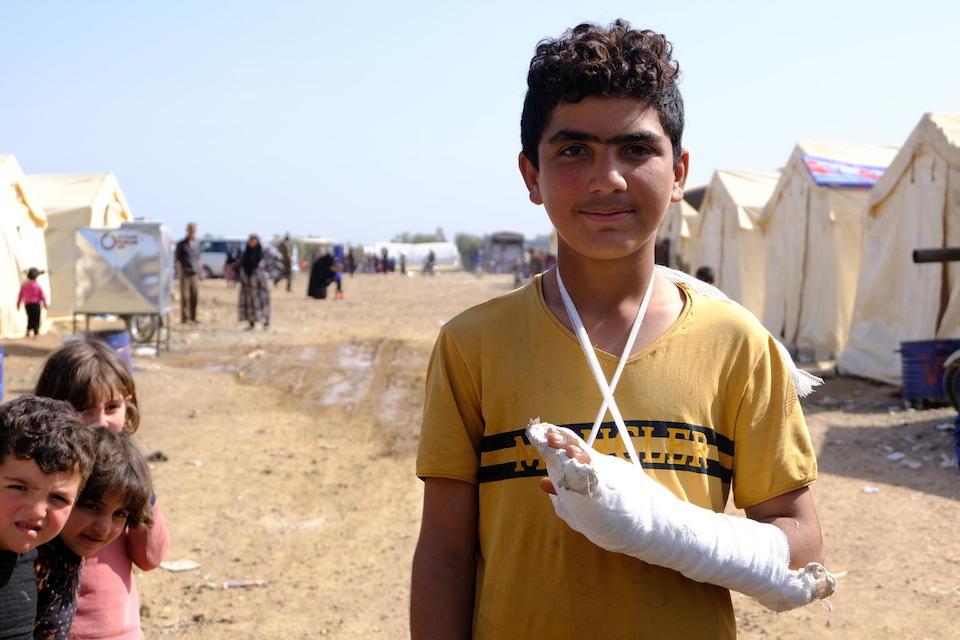
After more than a decade of civil war in Syria, the earthquakes are an emergency on top of an emergency. The country already had the largest number of internally displaced people in the world, with 6.8 million people forced from their homes – including nearly 3 million children.
More than 3.7 million children in Syria have been affected by the quakes. Over 500,000 people are believed to have been displaced.
“Even before these catastrophic earthquakes, humanitarian needs among children of Syria were higher than they have ever been,” said UNICEF Regional Director for the Middle East and North Africa Adele Khodr.
“As we approach 12 long years of conflict, millions of families are living on the brink of disaster, feeling as if the world had forgotten them. We must support these families for the long term, helping them pick up the pieces of their lives.”
Schools and water systems are damaged and destroyed
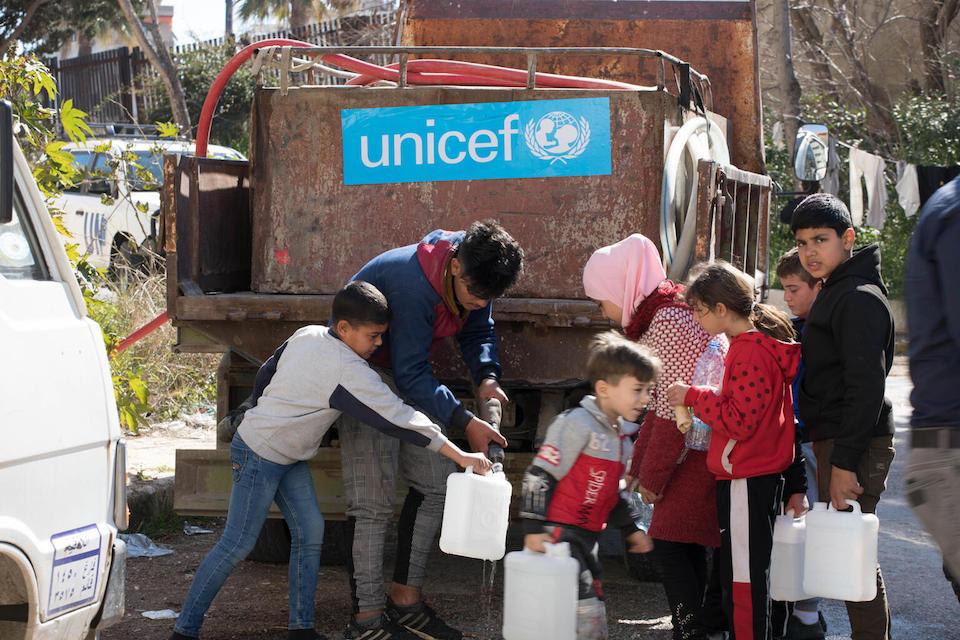
The earthquakes have crippled essential infrastructure, including schools and water systems, disrupting children's educations and compromising access to safe water and sanitation.
UNICEF has reached almost half a million people in Syria with water, sanitation and hygiene (WASH) services and supplies, including hygiene kits, water trucking, solid waste management and de-sludging of septic tanks. Over 294,000 people, including those taking refuge in shelters, have been reached with essential supplies and medical consultations through UNICEF-supported health centers and mobile health teams.
More than 130,000 children under 5 have received nutrition services, and over 100,000 children and caregivers have been reached with psychological support, including psychological first aid, recreational activities, mental health care and parenting sessions.
Getting back to learning is essential for children's well-being
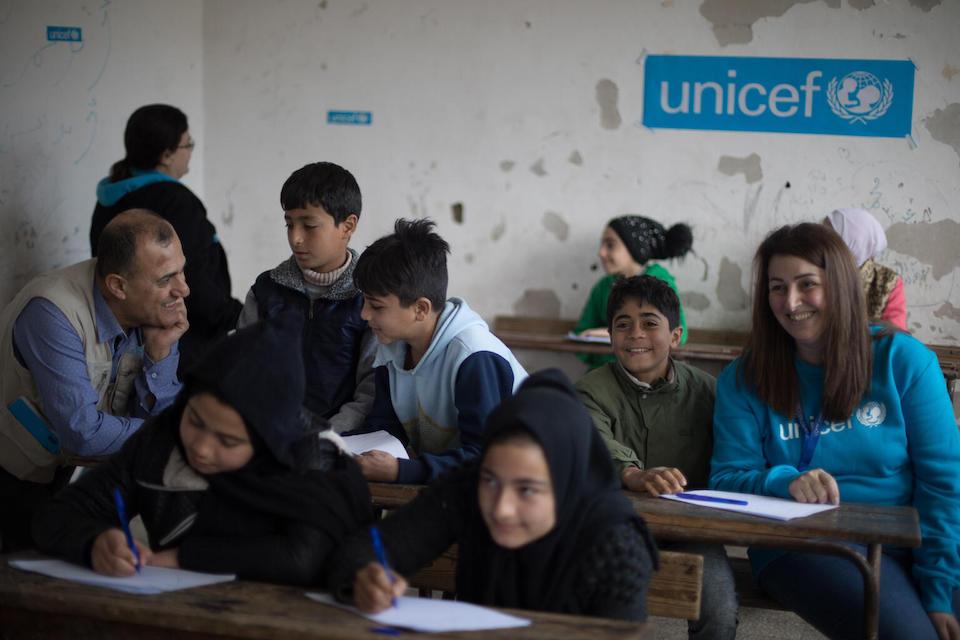
When emergencies tear children's lives apart, reestablishing a school routine can make a world of difference to their emotional well-being. UNICEF is delivering education supplies and recreational kits for distribution to schools and shelters to give children the chance to continue learning.
“These children need some hope for the future and the only thing that will bring that is peace and a chance to rebuild their lives," said UNICEF spokesperson Joe English. "Education is key. If you can get kids back into the classroom and back into learning, that gives them this spark that allows them to imagine a future where they are not living in a tent and not being forced from their homes again and again.”
A safe place to play
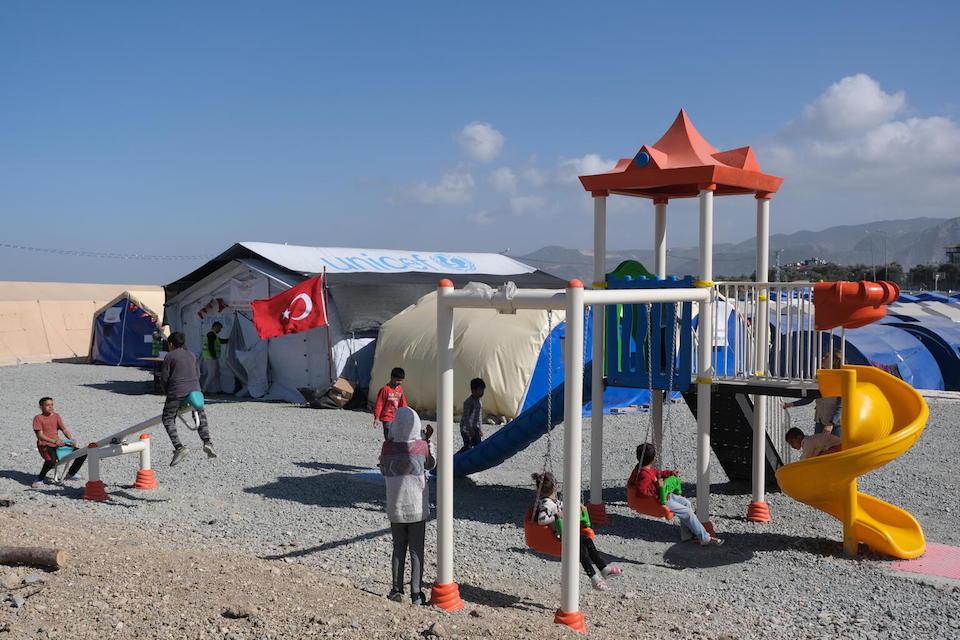
To give children a safe place to play, UNICEF is opening Child-Friendly Spaces near temporary shelters. To date, UNICEF has provided recreational activities and psychosocial first aid for more than 193,000 people in Turkey.
With support from UNICEF, Türkiye's Ministry of Education has set up 87 tents, which are being used as temporary learning centers. Catch-up classes are running in two shifts benefiting nearly 3,600 children every day. UNICEF continues to identify unaccompanied and separated children and refer them for further support.
Rebuilding lives, protecting futures
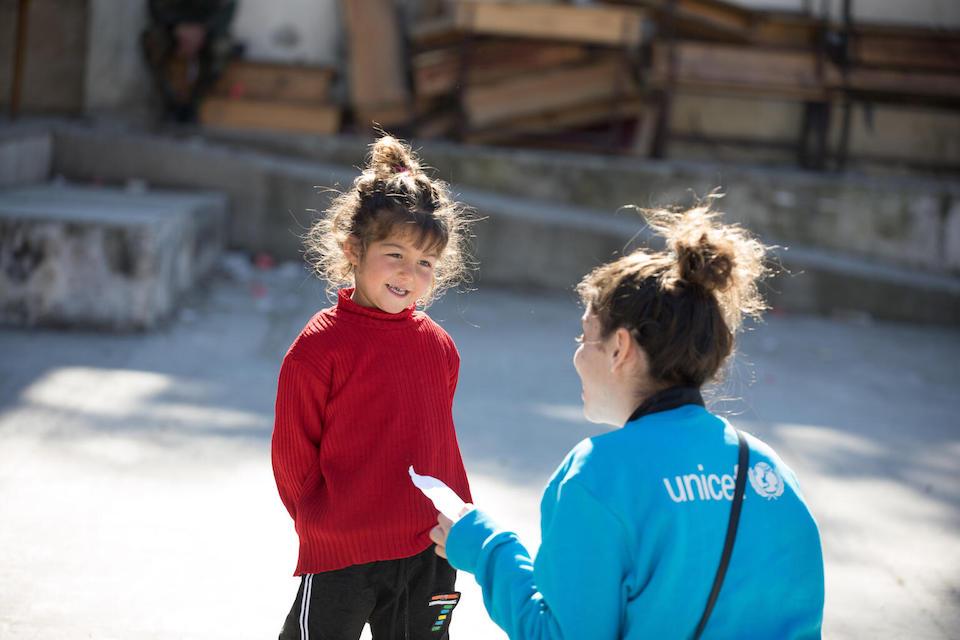
“Families forced from their homes by the earthquakes have spent the past four weeks focused on survival, their lives on hold while aftershocks continue to rumble,” said UNICEF Regional Director for Europe and Central Asia, Afshan Khan. “It is now critical to do all we can to help families begin to rebuild their lives – providing children with psychosocial support, getting them back into learning as soon as possible, and providing some stability amid the chaos.
“Children have seen their whole world crumble before their eyes, but we know how to help them rebuild,” Khan continued. “Providing children with the tools – psychosocial support, play and learning, and the stability brought by knowing that their basic needs are met – are immeasurably important in ensuring their long-term well-being.”
UNICEF is appealing for $196 million to reach 3 million people in Turkey, including 1.5 million children. To deliver immediate lifesaving support for 5.4 million people impacted by the earthquake in Syria, including 2.6 million children, UNICEF is requesting $172.7 million.
